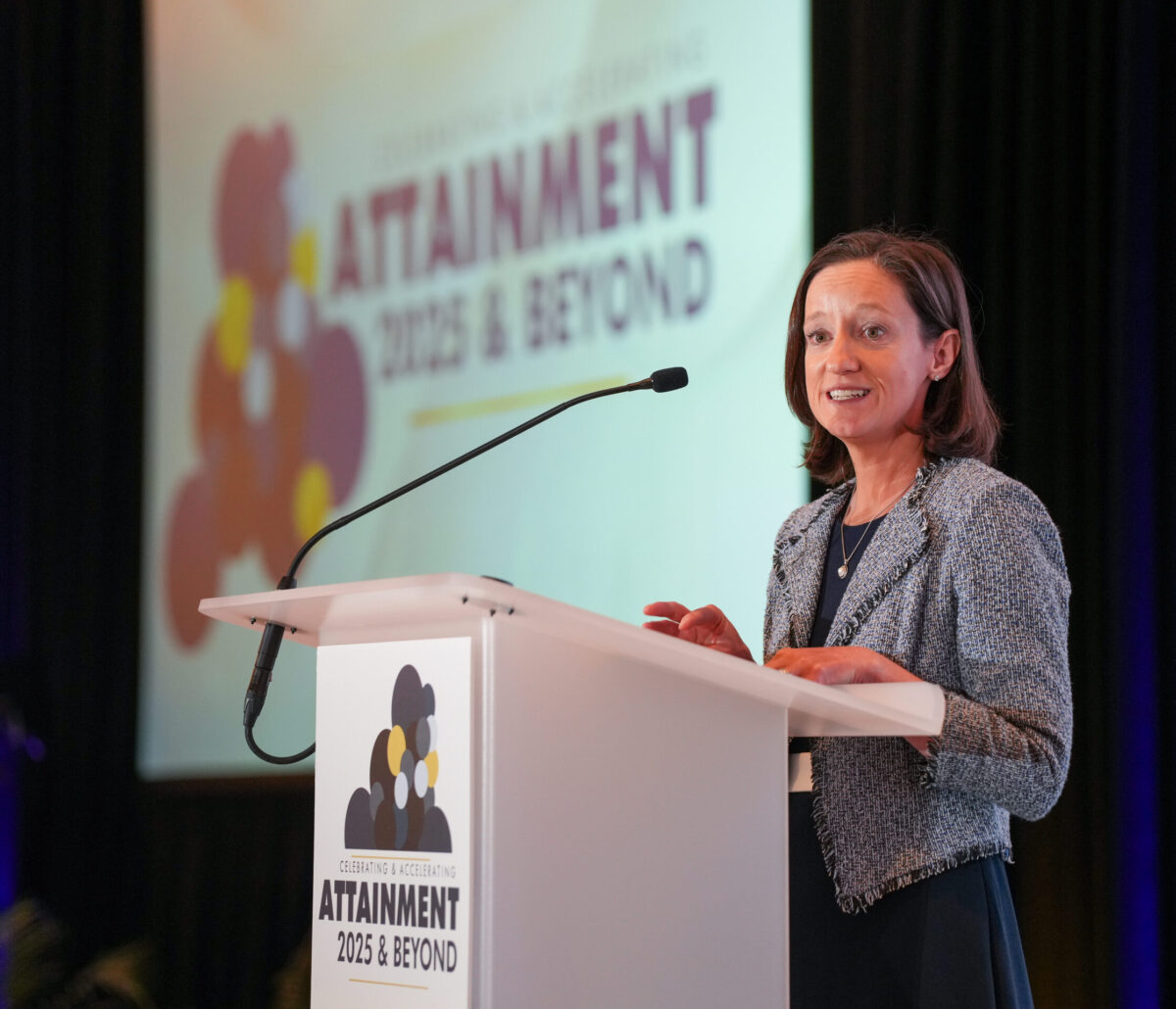IHEP-Led Coalition Urges ED to Recognize Student Experience and Belonging in New Postsecondary Student Success Recognition Program

Washington, DC (May 28, 2024) –The Institute for Higher Education Policy (IHEP) led a coalition of organizations and researchers in recommending that the U.S. Department of Education (ED) recognize student experience and belonging as evidence that an institution is committed to supporting student success. The recommendations were shared in response to ED’s request for information regarding the development of the Postsecondary Student Success Recognition Program. The program aims to recognize institutions excelling in supporting students from all backgrounds to achieve affordable credentials and prepare for successful careers.
Read the full letter below.
—
May 28, 2024
Dr. Jennifer Engle
U.S. Department of Education
400 Maryland Avenue SW, room 5C136
Washington, DC 20202
cc: James Kvaal, Under Secretary
Raj Darolia, Chief Economist
Dear Dr. Engle,
Thank you for the opportunity to inform the design and measurement of the inaugural Student Success Recognition Program. On behalf of the 23 undersigned organizations and individuals, we write to recommend that the Department recognize student experience and belonging as evidence that an institution is committed to supporting student success and explicitly allow institutions to submit measures of student experience that have been validated as early indicators of student success to demonstrate this commitment.
As the Department outlines in its Request for Information (RFI), completion is a critical component of student success. The RFI also notes that the “consequences of stopping or dropping out can be significant” and those “who leave college with educational debt but no credential are far more likely to default on their student loans.” For these reasons, it is critically important that institutions implement and measure the efficacy of strategies that can lead to timely completion, including those practices that positively impact leading indicators of completion, such as grades, course withdrawals, and retention.
For the past several years, an increasingly robust body of literature has provided significant theoretical and experimental evidence that attending to experience and sense of belonging can have measurable, positive impacts on students’ likelihood of academic success and retention. When institutions employ practices that make students feel valued and supported in their learning, they are more likely to persist through obstacles and take actions like attending office hours and using school resources, which can positively impact retention and completion. These benefits accrue to students of all backgrounds and notably strengthen outcomes among students from structurally disadvantaged groups like Black, Latino, and American Indian and Alaska Native students, in addition to first-generation college students, and students from low-income backgrounds.
Beginning in fall 2020, the Student Experience Project (SEP) – a collaboratively designed community of practice composed of 300 faculty at six institutions – implemented and evaluated the impacts of creating more supportive and equitable learning environments. This project demonstrated that with sufficient supports and tools, faculty and administrators can meaningfully improve students’ experience, sense of belonging, and self-efficacy through practices like creating a growth mindset culture and sense of community within the classroom, providing a wide range of accessible academic support options, and normalizing challenge inside and outside of the classroom. The evidence shows that these practice changes led to fewer students receiving D’s or F’s, more students receiving A’s and B’s, and fewer students withdrawing from coursework.
Taken together, there is strong evidence in both research and practice that attending to students’ experience and belonging meaningfully improves their academic outcomes and likelihood of success. For this reason, we recommend the Department explicitly allow institutions to submit measures of experience and belonging as permissible evidence that they are taking actions to promote student success, as long as those measures have been validated as early indicators (statistically significant predictors) of relevant student success metrics. Such measures may include the Student Experience Index used in the SEP or other student experience measures that an institution submits as part of its application for the Student Success Recognition Program, along with a science-based rationale for their relationship with student success outcomes.
Thank you again for the opportunity to inform this important work. We applaud the Department for creating a program that will recognize important institutional contributions that are improving outcomes for their students. For questions about this letter, please contact Eleanor Eckerson Peters (epeters@ihep.org), Director of Research and Policy at the Institute for Higher Education Policy.
Sincerely,
Institute for Higher Education Policy (IHEP)
EducationCounsel
Center for Law and Social Policy
Raikes Foundation
Shift
The Education Trust
Young Invincibles
Denise Bartell, Senior Associate Vice President for Regional Faculty & Student Success, Kent State University
Malcolm B. Butler, Dean, Cato College of Education, University of North Carolina at Charlotte
Bojan Cukic, Professor and Chair, Department of Computer Science in the College of Computing and Informatics, University of North Carolina at Charlotte
Steven P. Dandaneau, Executive Director, The Association for Undergraduate Education at Research Universities (UERU)
Daniel Grano, Chair and Professor, Department of Communication Studies
Cameron A. Hecht, Assistant Professor of Psychology, University of Rochester
Jennifer Keup, Executive Director, Coalition of Urban Serving Universities (USU)
Sushilla Knottenbelt, Principal Lecturer III, Department of Chemistry and Chemical Biology and Faculty Lead, Student Experience Project, University of New Mexico
Christine Logel, Associate Professor, Renison University College affiliated with University of Waterloo
Mary Murphy, Founder and CEO, Equity Accelerator
Dave Paunesku, Founding Director, Project for Education Research That Scales (PERTS)
Lisa Quay, former executive director of Student Experience Research Network
Krysti Ryan, Chief Operating Officer, Equity Accelerator
John Smail, Interim Dean, College of Humanities & Earth and Social Sciences, University of North Carolina at Charlotte
Lisa Slattery Walker, Associate Provost for Undergraduate Education and Dean of University College
Tammy Wyatt, Vice Provost for Student Success, University of Texas at San Antonio
—
A formal copy of the letter with source citations is available here.


